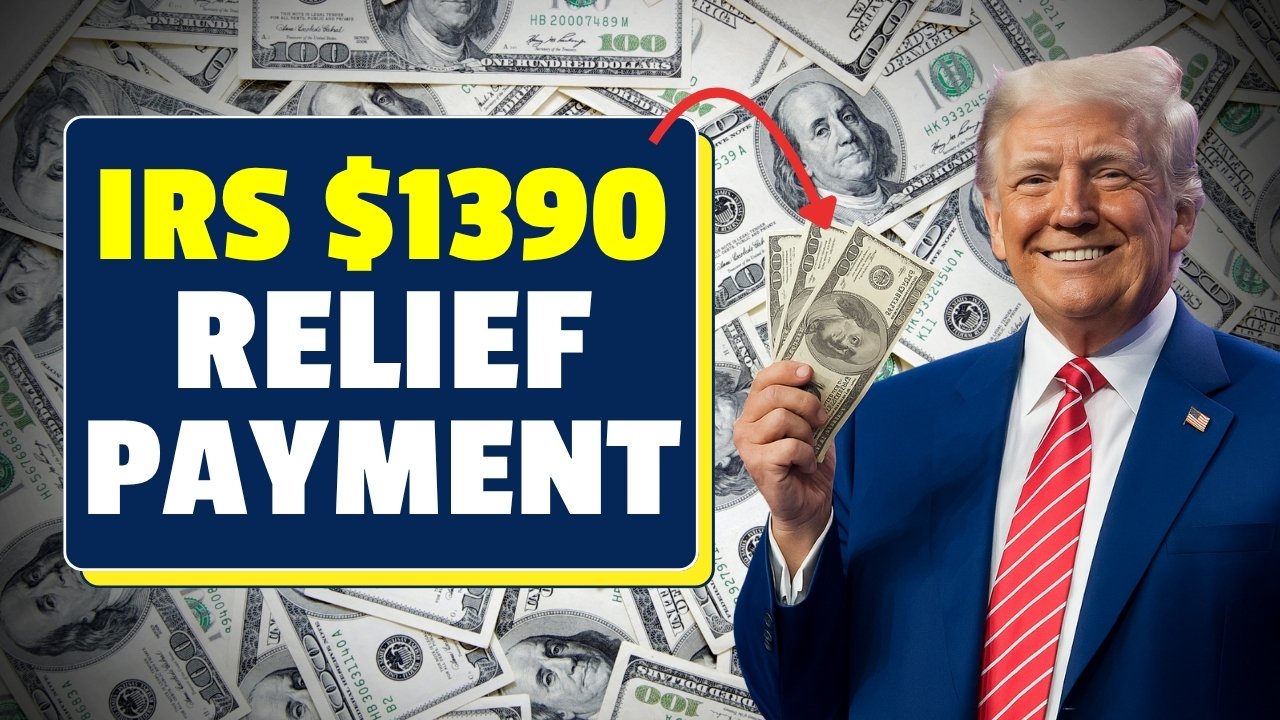In recent weeks, news and social media posts have claimed that the Internal Revenue Service (IRS) will issue a $1,390 relief payment by direct deposit in November 2025. The claim has spread quickly, raising hopes for another round of federal aid as families face high prices and financial stress.
However, before expecting this payment, it’s essential to look at what the IRS has officially confirmed. While the message sounds convincing, complete with exact figures, timelines, and references to direct deposits, no such federal announcement or law currently supports it.
Table of Contents
Understanding the Viral Claim
According to circulating reports, the IRS is supposedly preparing to distribute $1,390 to eligible taxpayers in November 2025. The claim adds that funds will be sent automatically through direct deposit for those with existing bank details on file, with paper checks for others. Some versions of the claim even mimic IRS-style language to appear authentic.
But none of these posts reference a real government document or an official press release. That alone should raise concern. Every legitimate federal payment, whether it’s a tax credit, stimulus, or rebate, comes from Congressional approval and an IRS notice. Without those, the claim remains unverified.
What the IRS Actually Says
A review of the IRS Newsroom shows no announcement of a $1,390 payment scheduled for November 2025. The agency’s current press releases only cover tax filing updates, refund information, and administrative guidance. There is no mention of a new direct relief program or stimulus payment.
Independent fact-checkers, including the Associated Press (AP) and Yahoo Finance, have confirmed that no new federal stimulus or IRS relief payment is planned for 2025. The IRS Economic Impact Payment (EIP) portal, used during the pandemic, is now closed and archived.
This means any message promoting a new “IRS relief deposit” is either misinformation or a misinterpretation of other government programs, such as state-level rebates or existing benefits.
Why the Rumor Sounds Convincing
The claim feels believable because it borrows details from previous IRS payments, like the stimulus checks from 2020 and 2021. These older programs also used automatic direct deposits and similar income thresholds. Scammers often reuse this information to make new false claims look real.
Moreover, many misleading articles use phrases such as “IRS confirms” or “payments begin next week” without providing official links. Some even mix real IRS language with fabricated data. These tactics make it harder for people to distinguish fact from fiction.
How to Verify Real IRS Announcements
To ensure safety, taxpayers should always rely on official IRS channels and reputable news sources.
Step 1: Visit the IRS Newsroom at irs.gov/newsroom. All official updates are published there with release numbers like IR-2025-xxx.
Step 2: Confirm that a federal payment is tied to legislation. Real relief programs are backed by Congress and listed on government portals.
Step 3: Use only official IRS tools such as “Where’s My Refund” or “Your Online Account” for status checks. Never click random links from social media or email claiming to verify your payment.
If a post or message promises quick money without verification or urges you to share your Social Security or banking information, treat it as a phishing attempt.
What You Could Actually Receive in November
Although there is no $1,390 IRS payment, some Americans may still receive legitimate deposits this month. The IRS continues to issue tax refunds and adjustments to those who filed their 2024 returns or corrected prior filings. These are standard refunds, not new relief checks.
In addition, certain state governments are running rebate or relief programs unrelated to the IRS. For example, energy rebates, property tax credits, or cost-of-living payments may still reach residents in late 2025. People should check their state’s revenue department website for accurate information.
Finally, Social Security, SSI, and SSDI beneficiaries will continue to receive their scheduled payments, but these are not new IRS programs. They follow the Social Security Administration’s regular calendar.
Why You Should Be Cautious
False payment claims can expose people to identity theft. Fraudsters often create fake IRS pages asking for banking or Social Security numbers. The IRS never contacts taxpayers by text, email, or social media for verification. Anyone who shared sensitive information due to this rumor should immediately contact their bank, change IRS account passwords, and report phishing emails to phishing@irs.gov.
The IRS has warned repeatedly that new scams surface whenever financial hardship is widespread. Scammers exploit public hope for financial relief, especially around holidays. Always verify directly with irs.gov before trusting any payment post.




